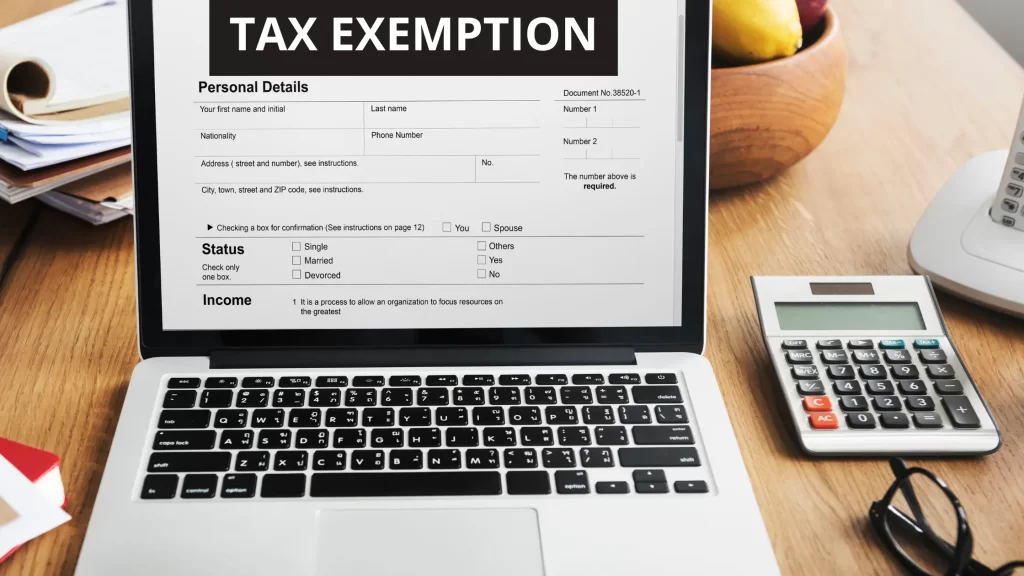
Companies exempted from tax in Nigeria is a concept that is here to stay even if the importance of tax deduction to the advancement of a nation has been ascertained time and time again, some entities have been granted tax breaks by the Nigerian government.
This is evident in the provisions of the Finance Act 2020 and consolidated by subsequent Finance Act that exempt small companies in Nigeria from the payment of several taxes. The move is also aimed at fast-tracking growth across the sectors where these businesses operate.
Recall also that the move to exempt certain companies from paying taxes came on the heels of the Covid-19 pandemic and the downside effects it had on businesses due to the safety protocols that restricted business activities.
Companies Exempted From Tax in Nigeria: The Finance Acts
The Finance Act, 2020 which was assented to on December 31, 2020, by the President of Nigeria, Muhammadu Buhari, GCFR took effect from January 1, 2021.
The Act amended the provisions of fourteen (14) Acts, including some provisions of the Companies Income Tax Act (CITA), Industrial Development (Income Tax Relief) Act,etc.
It states that the companies that fall into the category of “small-sized companies” are exempted from the payment of Companies Income Tax (CIT), Education Tax (EDT), and Value Added Tax (VAT) obligations.
However, such a company’s status as a small company can not be determined until the tax year.
Although the Companies Income Tax Act (CITA) has classified a small company as one with an annual gross turnover of ₦25million or less, there are contradictory provisions in other related laws dealing with the taxation of small companies that have used a different threshold.
Breakdown of Tax Exemption in Finance Act 2020
This section presents the major changes stipulated by the Finance Act, especially in the line of companies exempted from tax in Nigeria. Here are some of the exemptions below and the stated changes:
Value-Added Tax (VAT)
By the legislation, tickets from commercial airlines are exempted from the payment of Value Added Tax alongside the lease or hire of agricultural equipment for agricultural purposes.
Companies Income Tax (CIT)
The Finance Act 2020 also introduced the definition of a public character clause especially for companies enjoying one form of tax exemption or the other according to section 105 of the CITA.
In clearer terms, such a company must register in line with the law and avoid the distribution of its profits to its members.
Tax exemptions were retained for companies operating in all existing free trade zones across the country but now with a clause of still going ahead to file tax returns. This portends that there is no exemption without proper filing.
Capital-Gains Tax (CGT)
In the case of compensation for loss of job within the earning capacity of Ten Million Naira (₦10,000,000.00), no Capital Gain Tax (CGT) is expected to be obtained except if the amount reaching above Ten Million Naira (₦10,000,000.00).
The deduction when higher than ₦10,000,000.00 will be remitted to any of the State Internal Revenue Service and has to happen by a timeline specified by the Pay As You Earn regulations.
Personal Income Tax (PIT)
Persons earning the minimum wage of ₦30,000 (Thirty Thousand Naira) will now be exempted from the Pay-As-You-Earn deduction as captured in the Personal Income Tax Act, PITA.
Recall that previously, only those that earned ₦2,500 (Two Thousand Five Hundred Naira) were exempted from PAYE deduction.
The Finance Act 2021
The Finance Act 2021 which was implemented in 2022 was aimed at the opposite of the Finance Act 2020 as it introduced more taxes and lifted the exemptions on some existing taxes.
For instance, there was a review of the Capital Gains Tax where the tax exemption of shares was removed while 10% will now apply on gains from the disposal of shares where the proceeds are NGN100 million or above in any 12 consecutive months.
In another instance, the exemption on profits of educational institutions has been lifted by the amendment of Section 23 (1)(c) of CITA. This portends that educational institutions will now pay up to 20% or 30% as tax depending on their turnover.
The Impact of Nigeria Startup Act 2022
In October 2022, President Buhari of Nigeria signed into law the Nigeria Startup Bill which is aimed at bringing tax incentives to companies that fall under the startup categories.
The piece of legislation among other innovations will among other incentives, qualify startups for Personal Income Tax (PIT) immunities of 35% for two years.
Read More About the Nigeria Startup Act: 4 Tax Implications of the Startup Act in Nigeria
An Expository Into The Companies Income Tax Act (CITA)
The Companies Income Tax Act is the enabling legislation for the assessment and payment of income tax on companies in Nigeria.
Sections 78 to 81 of the Act allow the deduction of income tax payable on interest, rent, and other sources of profits.
Parties paying to companies liable to tax under the Act are expected to remove tax at source thereon and send the same to the Federal Inland Revenue Service (FIRS) or the State Internal Revenue Services. This particular deduction is known as Withholding tax (WHT).
Specifically, Section 81(1) of the Act states that Income tax assessable on any company, whether or not an assessment has been made, shall, if the Board so directs, be recoverable from any payments made by any person to such company.
However, it is important to note that only persons required to deduct WHT under Section 81 of the Act are liable to the provisions thereunder.
In this regard, Section 23 of the Act allows specific profits to be exempted from income tax under the Act.
Profits such as that of a company being a statutory or registered friendly society, the profits of small companies, the profits of any company engaged in ecclesiastical, charitable, or educational activities, the profits of any company being a trade union registered under the Trade Unions Act, etc.
Naturally, tax-exempt companies may be given the assumption that their tax-exempt status is all comprising, and that they are excused from all tax obligations.
However, the concluding paragraph of Section 23 1A of the Act explains that the tax-exempt status of a company does not exempt it from complying with the provisions on the deduction of tax at source in Sections 78, 79 ad 80 of the Act.
At the same time, there is no mention of any compliance requirements with respect to Section 81 of the Act.
Therefore, it can be suggested that tax-exempt companies under Section 23 of the Act are not required to comply with Section 81 of the Act.
In conclusion, due to certain provisions in the Finance Act, companies categorized as “small-sized companies” in Nigeria are exempted from paying some taxes.
What Is A Small Company?
According to the Finance Act, a “small company” is a company that earns an annual gross turnover of ₦25million or less.
It has been established that categorizing a company as ‘small’ can only be determined at the end of a relevant assessment year and effected in the tax year.
Follow us on Twitter for more update

DISCLAIMER
The information contained herein is general and is not intended, and should not be taken, as legal, accounting or tax advice provided by Taxmobile.Online Inc to the reader. This information remains strictly the opinion of Taxmobile.Online Inc.
The reader also is cautioned that this material may not apply to, or suitable for, the reader’s specific circumstances or needs, and may require consideration of other tax factors if any action is to be contemplated. The reader should contact his or her Tax Advisers before taking any action based on this information.All rights reserved. No part of this document may be reproduced, retransmitted or otherwise redistributed in any form or by any means, electronic or mechanical, including by photocopying, facsimile transmission, recording, rekeying, or using any information storage and retrieval system
